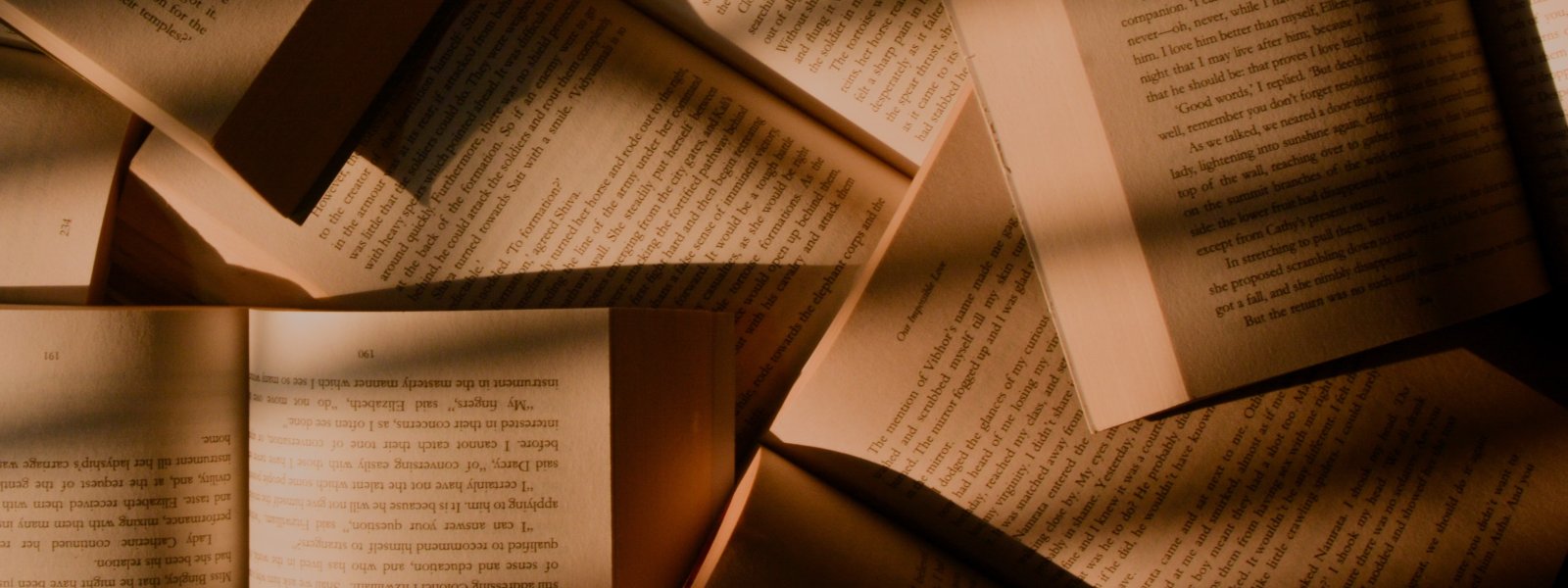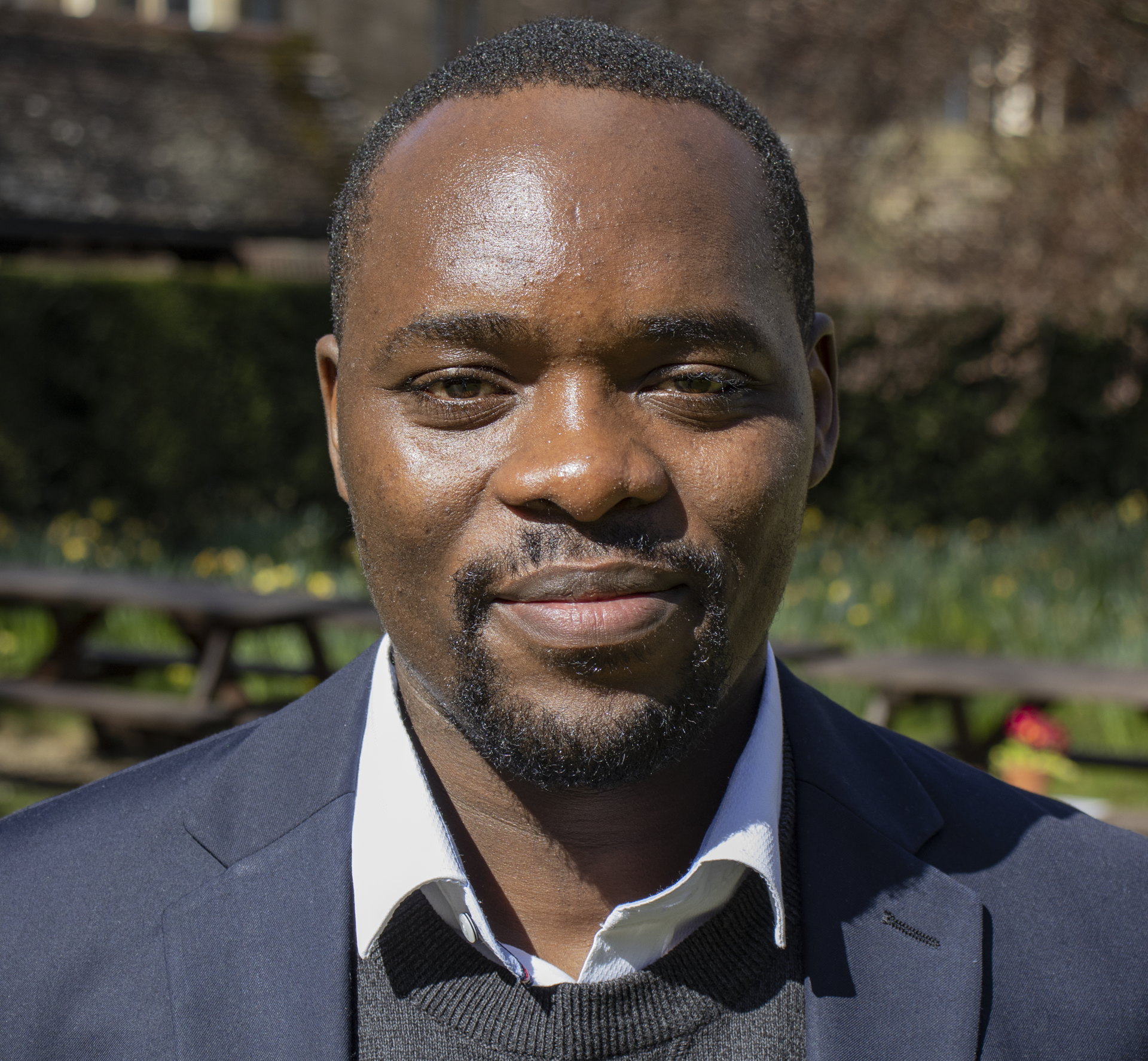Deus Kansiime is a Gates Cambridge Scholar and a postgraduate Member of Sidney. He studied Literature at Makerere University in Kampala, Uganda, and during his time there became interested in the divide between the texts that were formally recognised as ‘Ugandan Literature’ and the work being produced within the country’s vibrant contemporary literary scene.
He asked himself, "Why were these writers and poets not on the syllabus, or on the radar of literary prizes and international publishers?"
Deus’ PhD focuses on "literary activism" in Uganda and the role of non-academic, non-commercial literary organisations, known as LINGOs, in promoting previously unrecognised writers and groups.
In the run-up to UNESCO World Book Day 2023, we met Deus to learn more.
Where did the inspiration for your PhD come from?
“The inspiration for my PhD came from my interaction with a group of poets during my undergraduate studies in Kampala, and how that made me realise that my ‘textbook view’ of literature was actually very deceptive, because it didn’t capture these ‘non-professional actors’.
“I would bump into people who were writing wonderful things and circulating them in a very small way."
“There were attempts by these writers to form small groups or organisations, with a view to developing their own networks or their own enterprise. They wanted their groups to be informal, but to move forward they might need an ISBN number, for example. If they wanted to access places, if they wanted to be taken seriously - even by their own people - they needed to create a certain minimum structure, a ‘grey zone’ of some sort that was not necessarily commercial but had an interest in giving writers the platform they needed. And so that's why you have that link between literary activism and what we call literary NGOs – LINGOs - which are basically writers’ associations.
“So, my PhD is really a study of literary material and how it is produced, and I use the expression ‘literary activism’ to describe efforts to get particular texts and books produced and circulated - books that may not necessarily be captured by what you might call the mainstream literary enterprise."
You mentioned the divide you observed between the books that were being mentioned in your academic department and the literature you were hearing and reading on the street. Was that gap between the contemporary scene and more-established Ugandan or Sub-Saharan literature, or was the ‘textbook view’ you talked about focused on an older, more colonial selection of titles?
“I think it was kind of both. The department in which I studied my undergraduate degree had this anti-colonial history in its own reform. When the British rule ended in Uganda, there was an attempt to ‘Africanise the curriculum’, as they called it. Today they talk about ‘decolonising the curriculum’.
“That process created a form of literary activism which, for example, allowed oral texts to be studied in what was then the English department, but became the Literature department. That change itself was unique to East Africa - you don't hear of Literature departments elsewhere!
“So, there was a long history of trying to liberate particular texts. At the same time, though, every attempt to liberate or empower particular forms of literature itself becomes an exclusionary process.”
“So, by the time I was an undergrad, there was a feeling that there were Ugandan or African writers that had been canonised, and that choice of writers had created an image of writing that had made it very difficult to have, for example, a love novel or a romance novel on the curriculum in Uganda. The way literature is perceived in Uganda and in East Africa is also something that emerged from the colonial culture system. It coincides with literacy and the fact that the people who study, or write, or read, most of what counts as literature have a privileged access to education. That whole process itself creates its own elitism which, in time, excludes some kinds of popular literature even when the intention was to decolonise, or localise, or make more authentic, the canon.
“So that's why I paid more attention to these small organisations. What were they doing? Well, they had their own physical spaces, so they had book clubs and meetings – people would come and share what they had written and then discuss it. Some would do festivals once or twice a year. They were micropublishing and were organising their own small literary prizes. Maybe they were creating their own self-contained system.”
You use the term ‘literary activism’. Do these contemporary writers, then, share an anti-establishment perspective?
“So, I have a bifurcated view of ‘literary activism’. On the one side, the individual might be using literature for activism. For example, there's a Ugandan women writers’ organisation, FEMRITE, which emerged in the nineties, and it gave particular voice to women writers. FEMRITE has produced anthologies of stories told by semi-illiterate women from marginalised villages and rural communities – these women get the chance to write about their lives. There are also writers today who focus on other issues, like environmental protection or climate change.
“So that is one way of looking at literary activism, but the other way is just the general idea that these are writers that wouldn’t normally get space and so the LINGOs are giving them space - these are texts that we don't know and the LINGOs are trying to amplify them and make them as visible as possible. These people then are not activists in the first sense, but the effort to lift this work up is a form of activism in itself. FEMRITE does both.”
So, it sounds like LINGOs have had some success, but you have also noted a lack of more formal recognition for this type of writing, including internationally. What are the consequences of that?
“I think the failure to recognise these writers means we build a false picture about the contemporary writing in Uganda, in East Africa, in Sub-Saharan Africa.
“When you recognise a particular category of writers and you canonise them, and those writers then become the ones you talk about as ‘African literature’, you exclude others, yet in this case the excluded writers are the ones who are actually on the ground."
“If you then find that the people who are becoming the spokespersons for African literature around the world do not live in Africa, or that they had the access they had because they were educated in the UK, or in the US, or they grew up in those countries then, ok, they are African people and they're writing African literature and they're authentic in their own way, but they're not the start and the end of the story. So, the impression can be misleading.
“We also need to challenge the exotic view of African literature in the international cultural market. This view says that African literature must be about politics, it must talk about colonialism. People are also writing about love and life… and that's African! (laughs) That work is authentic and just because those writers cannot publish in New York or London does not mean that they're not publishing, or that they don't have regular readers or people who access their work. Some of their work is also very popular – some of the poets I met, for example, the crowd they brought to the National Theatre in Kampala was bigger than for the more-recognised poets.
“Of course, I'm not sure it would be possible to completely dismantle this view of what African literature is. To be fair, every society views other societies in a certain way, and the propagation of art also goes through the machinery of marketing and soundbites and stuff. These are very reductivist but, at the same time, very easy-to-use modes of thinking in terms of different societies and different products. And so I don't think it would be possible to fully dismantle these things, but for me, and I think also for the other people who are making this point, we want people – and I include publishers and those organising literary prizes in this - to have this ‘ethic of doubt’ and to say, ‘There's this that I see, but there are also these other possibilities."
"Just know that there are many ways of understanding literature from this part of the world and this is one story, it's not the only story.”
Further reading and viewing
We asked Deus to suggest some examples of work from the contemporary literary scene and also some more established Ugandan writers.
Micropublishers and performances from the contemporary literary scene
“In terms of Ugandan micropublishers, some good examples are Ibua Publishing, which publishes Ibua Journal, and Kitara Nation.
“You can also view performances by contemporary writers on YouTube. Some examples are the Lantern Meet of Poets channel, and also a poetry recital that group organised at the Uganda National Cultural Centre.”
Established Writers
“In terms of more established Ugandan writers who have emerged from this scene, there’s Jennifer Makumbi. In her early career, she had an affiliation with FEMRITE, and her first novel, Kintu, which brought her to prominence, was published by a literary organisation in Kenya called Kwani?.
“Then there is Susan Kiguli, arguably one of Uganda’s most refined poets ever. Her first poetry collection The African Saga was published by FEMRITE and Susan was at a certain point its Executive Director. Her other famous collection is Home Floats in the Distance.
“Goretti Kyomuhendo founded the African Writers Trust, an organisation that aims at bridging the gap between writers and international publishers and distributors. She’s been a panelist on international prizes like the Caine and the Commonwealth Prizes. So, she has some level of recognition internationally - you could easily get her books, even here in Cambridge libraries.”
Goretti Kyomuhendo’s second novel, Secrets No More, won the National Book Trust of Uganda Award.
“Then the other name is Moses Isewaga. Isewaga did not, as far as I am aware, have an affiliation to a LINGO when he started out, but he is now somebody they invite for workshops and so on - the LINGO was not a springboard for him.”
Moses Isewaga’s first novel was Abyssinian Chronicles.
The theme for this year's UNESCO World Book and Copyright Day is Indigenous Languages. Further information is available on the UNESCO website.
If you have something that would make a good news or feature item, please email news@sid.cam.ac.uk

